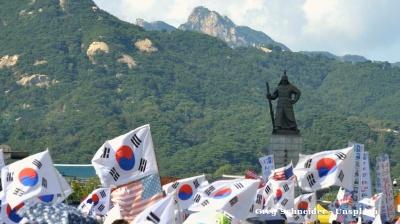As regional tensions rise in Southeast Asia, the long-standing maritime dispute between Indonesia and Malaysia over the resource-rich Ambalat Sea has resurfaced in diplomatic discussions, with both nations affirming their commitment to a peaceful resolution. Amid public concern and political pressure, leaders from both countries have recently reiterated that military confrontation is off the table, differentiating this situation starkly from the escalating border conflict between Thailand and Cambodia.
During a visit to Jakarta on July 29, Malaysian Prime Minister Anwar Ibrahim stated unequivocally that the dispute over the Ambalat block would not evolve into an armed conflict. "What should we do? Go to war? If we don’t want war, we must seek a peaceful resolution," said Anwar, following discussions with Indonesian President Prabowo Subianto, as reported by Detik.
Political pressures and public sensitivities
Anwar's remarks came in response to public unease triggered by a spike in military tensions between Thailand and Cambodia on July 24. He emphasised that Malaysia would continue to resolve the Ambalat issue via diplomacy, not militarisation, despite pressure from opposition factions in the Malaysian parliament urging a firmer stance, especially regarding territorial claims off Sulawesi.
The Ambalat region, located in the Sulawesi Sea, has long been contested due to overlapping claims and its strategic importance for oil and gas exploration. According to a Tempo report referencing an academic journal, the roots of this dispute trace back to the colonial era, when boundaries in Southeast Asia were often vaguely defined. Indonesia bases its claim on the 1982 United Nations Convention on the Law of the Sea (UNCLOS), asserting its rights as an archipelagic state and citing historical maps and agreements.
Conversely, Malaysia’s claim relies heavily on its unilateral 1979 maritime map, which includes parts of Ambalat within its maritime boundaries. It also references geographical proximity to Sipadan and Ligitan Islands, territories awarded to Malaysia by the International Court of Justice (ICJ) in 2002, as further justification. Malaysian officials, including Foreign Minister Mohamad Hasan, have refused to use the term "Ambalat," instead referring to the contested region as part of Malaysia’s Blok ND-6 and ND-7 in the Sulawesi Sea. As stated in Malay Mail, Hasan argued that the name “Ambalat” reflects Indonesia’s framing of the dispute and is not recognised by Malaysia.
Prabowo's stance: Calm and cooperation
President Prabowo, speaking on August 7, maintained Indonesia’s preference for a calm and collaborative approach. “We want a peaceful solution, there’s good faith from both sides,” he told reporters in Bandung, as cited by Detik. Although Indonesia continues to refer to the area as Ambalat, it has acknowledged that constructive dialogue with Malaysia is essential to avoid unnecessary escalation.
Tensions in the region have flared periodically over the past four decades. The situation peaked in 2009 when Malaysia announced plans to explore oil and gas in the disputed waters, prompting a strong diplomatic protest from Indonesia and increased naval patrols. Despite such flare-ups, no definitive resolution has been reached, though both nations have engaged in bilateral talks and even floated the idea of joint resource exploitation.
Still no final agreement
In recent consultations, particularly the 13th Annual Consultation held on July 29, both governments reaffirmed their mutual intention to find common ground. However, Anwar later clarified in Kota Kinabalu that no final agreement had been reached and that discussions were ongoing. "We will negotiate properly without surrendering anything. We are protecting every inch of Sabah,” said Anwar in a statement quoted by Malay Mail and Channel News Asia, underscoring the Malaysian government’s intent to defend its territorial integrity, especially amid rising concerns from MPs representing the state of Sabah.
Interestingly, Anwar has framed the dialogue with Indonesia as a symbol of strong bilateral relations. He described President Prabowo as a personal friend, suggesting that this unique rapport could help defuse tensions. "This is a border issue between two countries. Indonesia is an ally. Prabowo is my personal and family friend. I want this to be a good relationship," Anwar stated on August 3, as reported by Detik.
Behind the scenes, however, there are political realities at play. In both nations, nationalist sentiment and strategic interests in energy security place pressure on leaders to uphold their respective claims. Ambalat, with its estimated hydrocarbon reserves, is more than a symbol of sovereignty, it is a potential economic asset. Both sides are walking a tightrope between maintaining domestic political support and ensuring long-term regional stability.
Still, the commitment to diplomacy prevails. Indonesian and Malaysian officials have repeatedly cited UNCLOS as the primary legal framework guiding negotiations. While Malaysia leans on the ICJ’s 2002 ruling and its 1979 map, Indonesia stands firm on UNCLOS and the recognition of archipelagic baselines.
In sum, the Ambalat dispute remains unresolved but is being managed with mutual restraint. Rather than descending into military conflict, as seen in other parts of the region, Jakarta and Kuala Lumpur appear determined to set a regional example by prioritising legal norms and bilateral cooperation over nationalistic posturing.
As Southeast Asia navigates rising geopolitical tensions, the Ambalat negotiations serve as a litmus test for ASEAN's capacity to manage internal disputes peacefully. For now, the tone is one of diplomacy over drama, a hopeful sign for regional stability.
Features

INTERVIEW: Former US official on America's lost authority as Global South acts on Gaza
As Gaza's death toll passes 61,000, nations meeting in Bogotá pledge concrete measures to halt arms flows to Israel. Ex-US official Annelle Sheline, who resigned over Washington's Gaza policy, calls it a turning point for the Global South.

South Korea’s tax reform triggers investor concerns
What was once a buoyant rally under President Lee Jae Myung’s pledge to lift the Kospi to 5,000 points is now shadowed by concerns over the economic implications of sweeping tax changes.

A year on from Sheikh Hasina’s flight into exile, Bangladesh waits for stability
A year and a day after Sheikh Hasina’s dramatic departure, Bangladesh remains – still - in the throes of a fraught transition. The interim government, though promising, is yet to deliver meaningful reform.

UN accused of enabling Hamas through Gaza aid mismanagement
There are also persistent claims that Hamas is systematically looting the aid that does make it into Gaza. Military officials estimate 80% of all assistance is intercepted either by Hamas members, its affiliates or civilians acting under its control.



